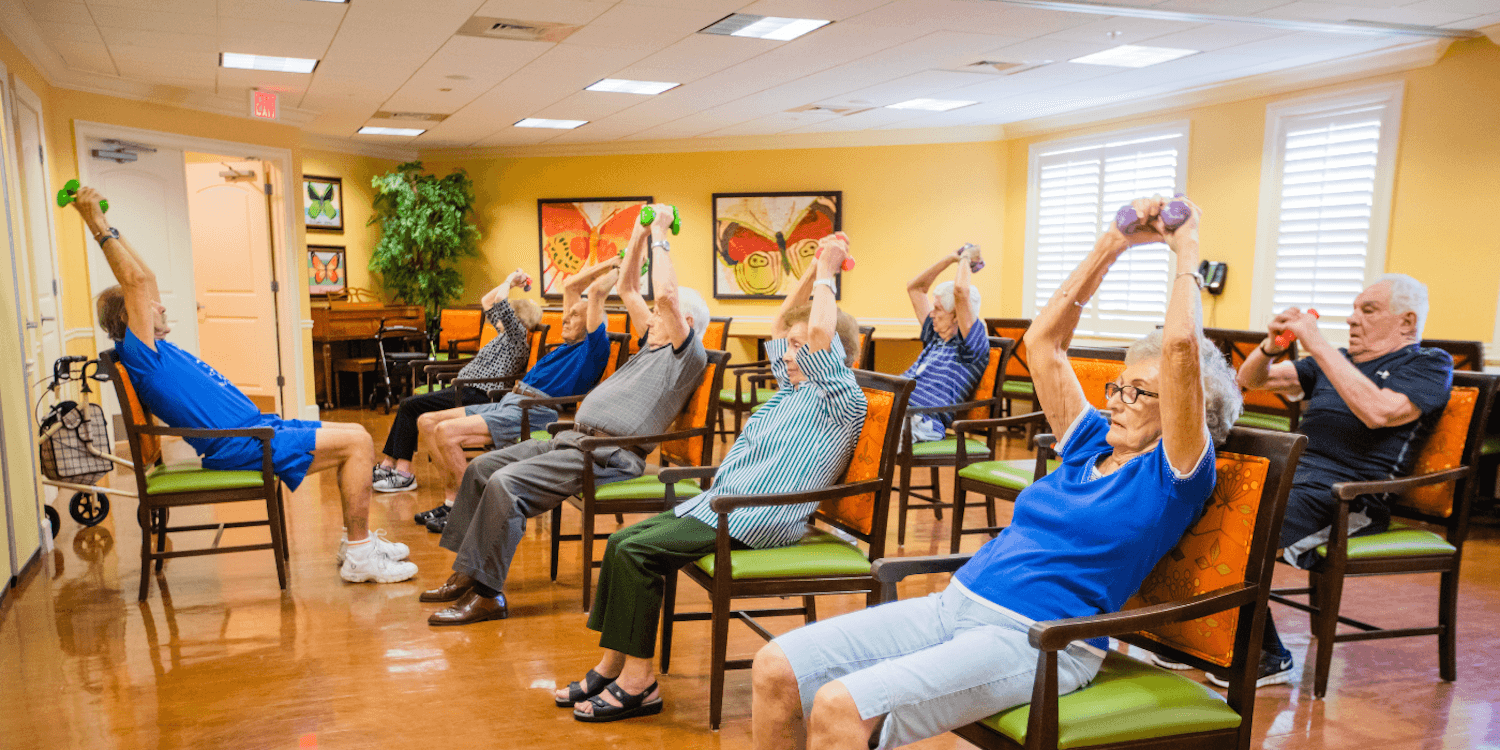Advanced Memory Assistance Solutions Offered with Alzheimers Care Charlotte
Advanced Memory Assistance Solutions Offered with Alzheimers Care Charlotte
Blog Article
Producing a Safe and Supportive Setting for Alzheimer's Care
The creation of a encouraging and safe environment for individuals with Alzheimer's is critical in enhancing their top quality of life. This entails not only physical adjustments within the home, such as minimizing risks and including familiar components, however additionally the application of structured regimens and meaningful tasks that satisfy their cognitive requirements. Additionally, understanding the psychological and emotional dimensions of care can dramatically impact their complacency and link. Checking out these complex techniques can expose essential insights into efficient caregiving approaches that may change the daily experiences of both caregivers and clients.
Recognizing Alzheimer's Requirements
Often, people with Alzheimer's illness display a variety of demands that call for customized techniques to care. As the condition advances, cognitive decrease manifests in various ways, impacting memory, thinking, and also the capacity to perform day-to-day tasks. Caretakers need to acknowledge these progressing demands to supply proper support and ensure a greater quality of life for those affected.
One critical aspect of recognizing Alzheimer's requirements is acknowledging the significance of regular and experience. Individuals usually discover comfort in recognized patterns, which can decrease anxiety and complication. Caregivers need to aim to produce structured day-to-day timetables that integrate purposeful tasks aligned with the person's abilities and passions.
Additionally, reliable communication is paramount. Individuals with Alzheimer's may struggle to share themselves or comprehend complex language. Caregivers must use basic, clear language, use non-verbal signs, and practice active listening to cultivate understanding and link.
Finally, social and psychological requirements can not be forgotten. Giving chances for social communication and preserving connections can considerably improve emotional wellness. Caregivers need to motivate engagement in neighborhood tasks or family events, promoting a feeling of belonging and purpose. Comprehending these varied needs is necessary for developing a helpful treatment environment.
Designing a Safe Home
Developing a secure home for people with Alzheimer's disease is important to promoting and reducing threats freedom. The layout of the home need to focus on security while enabling for personal convenience. Get rid of prospective hazards such as loosened rugs, sharp items, and clutter, which can lead to drops or mishaps. Ensure that paths are clear and well-lit, as appropriate lighting lowers disorientation and boosts wheelchair.
Including adaptive attributes is additionally important. Install grab bars in shower rooms and near stairs, and take into consideration using non-slip floor coverings in wet locations. Additionally, making use of contrasting shades for floors and wall surfaces can assist in differentiating rooms, assisting to mitigate confusion.
Knowledge is essential for people with Alzheimer's. Personalizing the setting with familiar items and pictures can reinforce a feeling of belonging and safety and security - Alzheimers Care Charlotte. It is additionally advantageous to have actually an assigned location for day-to-day activities, such as reading or crafting, which can give framework to their day
Lastly, applying a secure outdoor space enables secure exploration while getting in touch with nature. By attentively making the home environment, caregivers can dramatically improve the top quality of life for people coping with Alzheimer's disease.
Enhancing Communication Skills

Non-verbal interaction, consisting of face expressions, gestures, and touch, plays an essential role in sharing compassion and understanding. Keeping eye call and a calm attitude can improve the comfort degree of the individual, promoting a feeling of security.
Furthermore, it is necessary to exercise energetic listening. This involves being totally present, revealing persistence, and allowing the individual to express themselves without disturbance. Repeating may be essential; caregivers need to be prepared to revisit questions or subjects, as individuals with Alzheimer's may battle with memory recall.
In addition, utilizing aesthetic aids or signs, such as photos or familiar objects, can promote recognition check here and involvement. Ultimately, boosting communication abilities has to do with constructing count on and developing an atmosphere where people feel heard, valued, and recognized, thus improving their lifestyle.
Urging Social Interaction
Promoting meaningful social communications can significantly improve the health of individuals with Alzheimer's illness. Involving with others not just helps battle sensations of seclusion but likewise boosts cognitive function and psychological health. Structured social activities, such as team video games, crafts and arts, or music therapy, create chances for locals to link with peers and caregivers, which can lead to enhanced state of mind and lowered stress and anxiety.
Creating an inviting atmosphere that urges socialization is necessary. This can be attained by preparing public rooms that assist in interaction, such as comfortable seating locations or activity spaces. In addition, integrating familiar and culturally pertinent activities can spark memories and motivate involvement, enabling individuals with Alzheimer's to feel more connected to their past experiences.
Furthermore, caretakers must be trained to recognize and advertise social involvement among residents. By focusing on social interaction, we can dramatically enhance the lives of those living with Alzheimer's, promoting a feeling of community and belonging.
Supporting Caretaker Health

To support caretakers, organizations must provide routine training and instructional resources to enhance their understanding of Alzheimer's illness and caregiving strategies. Offering access to break treatment solutions permits caretakers to take necessary breaks, decreasing anxiety and exhaustion - Alzheimers Care Charlotte. Additionally, fostering a community through support groups can assist in psychological sharing and the exchange of functional suggestions amongst caretakers, producing a network of common assistance
Psychological wellness sources, such as therapy solutions, can likewise be crucial in resolving the psychological toll caregiving can take. By focusing on caretaker health, we develop an even more sustainable caregiving atmosphere that not only benefits the caregivers themselves but also boosts the general high quality of care gotten by individuals with Alzheimer's. Ultimately, sustaining caretakers is a crucial part in cultivating a thoughtful and efficient treatment setup.
Conclusion
Finally, the creation of a helpful and safe setting for individuals with Alzheimer's is necessary to improving their quality of life. By focusing on safety and security with thoughtful design, cultivating psychological health with familiar elements, and promoting involvement through structured regimens, caregivers can considerably influence the total experience of those affected by this condition. Moreover, supporting caretaker health is vital, as it ultimately contributes to a much more caring and effective care environment.
Repeating may be needed; caregivers must other be prepared to take another look at topics or questions, as people with Alzheimer's might battle with memory recall.

Report this page